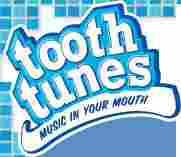Sunday, December 7, 2008
trigeminal neuralgia.... master of pain in face
DEFINITION
IMAGINE HAVING A JAB OF LIGHTNING-LIKE PAIN SHOOT THROUGH YOUR FACE WHEN YOU BRUSH YOUR TEETH OR PUT ON MAKEUP??
SOUND EXCRUCIATING???
If you have TRIGEMINAL NEURALGIA, attacks of such pain may occur frequently.
You may initially experience short, mild attacks, but trigeminal neuralgia can progress, causing longer, more frequent bouts of searing pain. These attacks can be spontaneous or provoked by even mild stimulation of your face. Trigeminal neuralgia affects women more often than men, and it's more likely to occur in people who are older than 50.
SYMPTOMS
You may have one or more of these symptom patterns with trigeminal neuralgia:
* Occasional twinges of mild pain
* Episodes of severe, shooting or jabbing pain that may feel like an ELECTRIC SHOCK
* SPONTANEOUS ATTACKS of pain or ATTACKS TRIGGERED by things like touching the
face, chewing, speaking, and brushing teeth
* Bouts of pain lasting from a FEW SECONDS TO SEVERAL SECONDS
* Episodes of several attacks lasting days, weeks, months or longer — some people
have periods when they experience no pain
* Pain in areas supplied by the trigeminal nerve (nerve branches), including the
cheek, jaw, teeth, gums, lips, or less often the eye and forehead
* Pain affecting ONE SIDE OF YOUR FACE at a time
* Pain FOCUSED in ONE SPOT or SPREAD in a wider pattern
* Attacks becoming more frequent and intense over time
CAUSES
The trigeminal nerve carries sensation from your face to your brain. In trigeminal neuralgia, also called tic douloureux, the nerve's function is disrupted. Usually, the problem is contact between a normal artery or vein and the trigeminal nerve, at the base of your brain. This contact puts pressure on the nerve and causes it to malfunction.
A variety of triggers may set off the pain of trigeminal neuralgia, including:
.. Shaving
.. Stroking your face
.. Eating
.. Drinking
.. Brushing your teeth
.. Talking
.. Putting on makeup
.. Encountering a breeze
.. Smiling
TESTS AND DIAGNOSIS
Your doctor will review your medical history and ask you to describe your pain — how severe it is, what part of your face it affects, how long it lasts and what seems to trigger it. You'll also undergo a neurological examination, during which your doctor examines and touches parts of your face to try to determine exactly where the pain is occurring and — if you appear to have trigeminal neuralgia — which branches of the trigeminal nerve may be affected.
You may need to have a magnetic resonance imaging (MRI) scan of your head, which can show if multiple sclerosis is causing trigeminal neuralgia.
Facial pain can be caused by many different disorders, so an accurate diagnosis is important. Your doctor may order additional tests to rule out other conditions.
TREATMENTS AND DRUGS
Medications are usually the first treatment for trigeminal neuralgia, and many people are SUCCESSFULLY TREATED WITH MEDICATION and require NO SURGICAL TREATMENT. However, over time, some people with the disorder eventually stop responding to medications, or they experience unpleasant side effects. For those people, injections or surgery provide other treatment options.
++ Medications
Medications to lessen or block the pain signals sent to your brain are the most common initial treatment for trigeminal neuralgia:
1. Anticonvulsants.
Carbamazepine (Tegretol, Carbatrol), phenytoin (Dilantin, Phenytek) and
oxcarbazepine (Trileptal) are the most common anticonvulsant medications used to
treat trigeminal neuralgia.
2. Antispasticity agents.
Muscle-relaxing agents such as baclofen may be used alone or in combination with
carbamazepine or phenytoin. Side effects may include confusion, nausea and
drowsiness.
ALTERNATIVE MEDICINE
Few clinical studies have been done on the effectiveness of alternative treatments for trigeminal neuralgia, so there's little evidence to support their use. However, some people have found improvement with these treatments. Always ask your doctor before trying an alternative treatment, since they may interact with your other medications. Complementary and alternative treatments for trigeminal neuralgia include:
Acupuncture
Biofeedback
Vitamin therapy
Nutritional therapy
Electrical stimulation of nerves
FROM: www.mayoclinic.com/health/trigeminal-neuralgia

1 comment:
Hi BeauDents,
I found your blog post via a search on Google for Trigeminal Neuralgia. I saw you paste that article in from the Mayo clinic. I'm not sure if you are suffering from TN, but my friend Ben and I started a patient to patient support group called LivingWithTN (www.livingwithtn.org) for people with Trigeminal Neuralgia. Check it out or refer a needy patient to it. we started it 3 weeks ago and already have 45+ people providing support to each other on it.
cheers,
Scott
Post a Comment